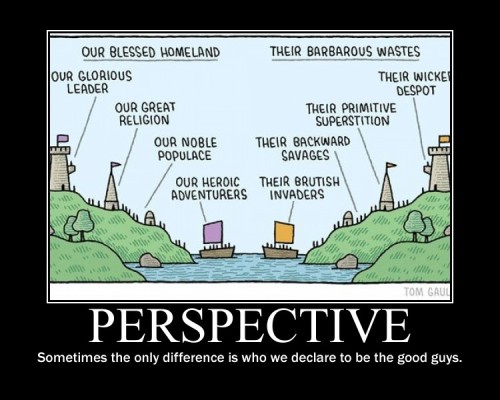I find it very disturbing that I hear more about the North Dakota pipeline protests from Facebook and Twitter than my usual news sources.
I think 2016 proves that the media no longer acts as the Fourth Estate.
I find it very disturbing that I hear more about the North Dakota pipeline protests from Facebook and Twitter than my usual news sources.
I think 2016 proves that the media no longer acts as the Fourth Estate.
http://warontherocks.com/2016/08/lets-talk-about-americas-strategic-choices/?utm_content=buffer2b6a0&utm_medium=social&utm_source=twitter.com&utm_campaign=buffer
I finally joined twitter. I avoided it for ages, but came across an article discussing Rukmini Callimachi's reporting on jihadist movements.
Anyways, I came across the link above and it fits in well with my current theme. I'm not sure I agree entirely. I look forward to the rest of the series.
http://mobile.nytimes.com/2016/10/23/opinion/sunday/the-dangers-of-hillary-clinton.html?smid=tw-share&_r=0&referer=https://t.co/swZLfvqCfC
Nice to see something capture my opinion so very well.
https://www.minnpost.com/politics-policy/2016/10/preserving-sweet-life-minnesota
This is the first article I've ever read that really explains the issues tied to government agricultural subsidies.


| Rank | Country | Population | % of Population |
| World | 7,256,490,011 | ||
| 1 | China | 1,367,485,388 | 18.84% |
| 2 | India | 1,251,695,584 | 17.25% |
| 3 | United States | 321,368,864 | 4.43% |
| 9 | Russia | 142,423,773 | 1.96% |
| 10 | Japan | 126,919,659 | 1.75% |
| 11 | Mexico | 121,736,809 | 1.68% |
| 12 | Philippines | 100,998,376 | 1.39% |
| 16 | Iran | 81,824,270 | 1.13% |
| 17 | Germany | 80,854,408 | 1.11% |
| 18 | Turkey | 79,414,269 | 1.09% |
| 21 | France | 66,553,766 | 0.92% |
| 22 | United Kingdom | 64,088,222 | 0.88% |
| 23 | Italy | 61,855,120 | 0.85% |

For what's supposed to be a humorous website, this article has some very good points. Warning, though, there is cussing involved.
http://www.cracked.com/blog/6-reasons-trumps-rise-that-no-one-talks-about/
I know drug addiction is a problem in rural areas, and I've seen many small towns that are struggling today. Two main things I wanted to point out.
First - with modern technology, it really doesn't have to be that way. Especially if telecommuting jobs continue to grow. I know a lot of people seem to prefer living in big cities, but I've got to admit that I don't see the appeal. Sure, I like to visit them on occasion. And it's nice to have more options. Better restaurants, bigger dating pool, enough customers to support more specialized shops. But get stuck in traffic every day trying to get to work? No thanks.
I live literally five minutes from work. As well as the grocery store, Barnes and Noble, and various places to eat and shop. If I can't find it here (or on the internet), I can spend a weekend in Chicago or Indianapolis or St Louis. But I'm not giving up two hours of every work day just sitting in traffic.
Cost of living is also significantly cheaper. So why are rural towns dying? Why aren't businesses sick of city costs pushing back out? (couple of answers - some are. Others need to be close to their market, or need the creativity that comes from random interactions which occur more easily in a city. Still, technology has made it so much easier to work remotely... We really ought to be decentralizing more. Take, for example, DC. On the one hand, it'd be harder to network and build connections if you're not in DC. On the other hand, the pentagon and various federal agencies make a nice big military target and much of the analysis and reporting could be done anywhere. We'll, depending on the classification level of course. Even with that, though, some analysis can be done in SCIFs at our various bases and don't require actually being in DC. Surely there's potential there?)
Anyways, second thing? Did you take a look at that map? America is a sea of Republican red, with Democratic blue islands. Yes, due to the population density those islands of blue have larger populations. Hence why Chicago helps make Illinois reliably blue, despite the red rural areas. It helps explain some of that political polarization we talk so much about. It's not just the segregation as social classes sort into various neighborhoods. It's also that someone in a small town is generally surrounded by like minded people, whereas those in a city are likely to also be surrounded by those who see things their way.
This is pretty ominous.
http://www.dailystar.co.uk/news/latest-news/552839/russia-recalls-officials-deputies-family-children-abroad-return-fatherland-ww3-world-war-3
I won't speculate further, as I know there's information I don't have, w/regards to what's going on.
